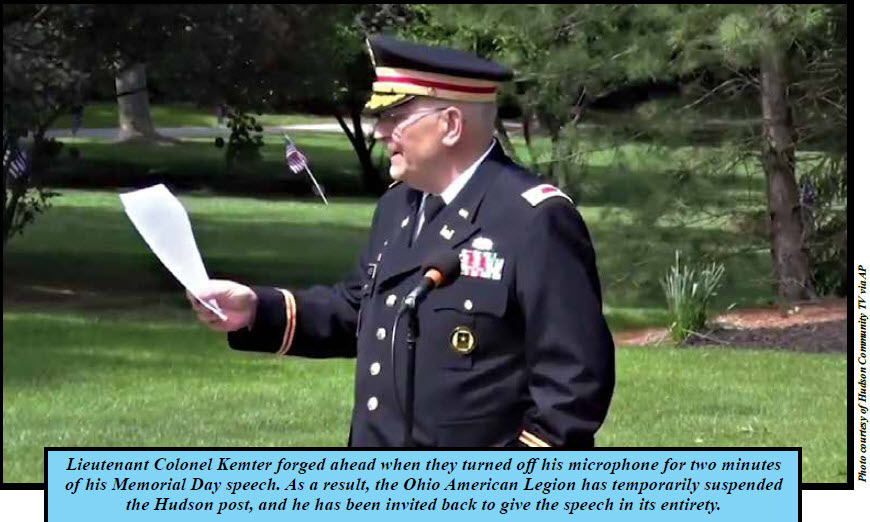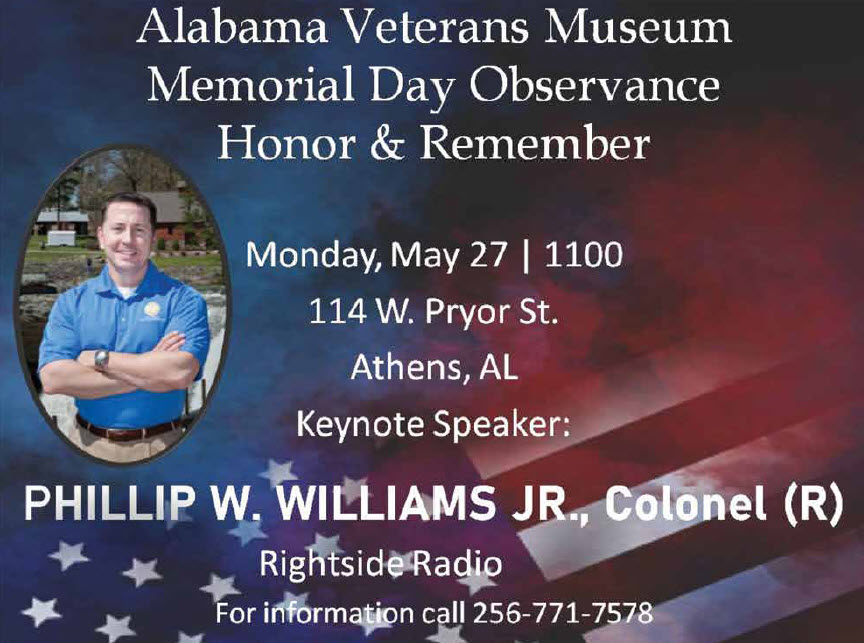 By: Ali Elizabeth Turner
By: Ali Elizabeth Turner
Each year for Memorial Day, active duty and retired officers from all the service branches give speeches to remind their audiences of the history and reason for the need to have a ceremony to remember the fallen. Almost always, they will do their homework and find out about a local hero and tell their story.
Such was the case of Retired Lt. Colonel Barnard Kemter, who for the second time since was asked to speak at a ceremony held at a cemetery where vets are buried in Hudson Ohio, about 15 miles away from Akron. Parts of his speech will be visible below, and then I’ll tell you what happened while he was speaking.
“Today is Memorial Day. This is the day that we pay homage to all those who served in the military and didn’t come home. This is not Veterans Day, it’s not a celebration; it is a day of solemn contemplation over the cost of our freedom. Memorial Day was born out of necessity. After the American Civil War, a battered United States was faced with the task of burying and honoring the 600,000 to 800,000 Union and Confederate soldiers who had died in the single bloodiest military conflict in American history. The first national commemoration of Memorial Day was held in Arlington National Cemetery on May 30, 1868, where both Union and Confederate soldiers were buried.
But in recent years the origins of how and where Decoration Day began has sparked lively debate among historians, with some, including Yale historian David Blight, asserting the holiday is rooted in a moving ceremony held by freed slaves on May 1, 1865, at the tattered remnants of a Confederate prison camp at Charleston’s Washington Race Course and Jockey Club – today known as Hampton Park.
More importantly than whether Charleston’s Decoration Day was the first is the attention Charleston’s Black community paid to the nearly 260 Union troops who died at the site. For two weeks prior to the ceremony, former slaves and Black workmen exhumed the soldiers’ remains from a hastily dug mass grave behind the racetrack’s grandstand and gave each soldier a proper burial.”
What happened next is to me so disrespectful, both to history as well as to an officer who served in the first Gulf War that I find it breathtaking in its arrogance.
The event’s organizers, who worked for the American Legion, by their own admission turned off the microphone into which Kemter was speaking for a full two minutes. They did so because they felt that the mention of former slaves burying dead soldiers was “not relevant for the program.” Why? Perhaps because it was May and not February, when we as a nation celebrate African-American History Month? On what planet does such a set of actions seem appropriate?
In her disastrously tone-deaf defense, Cindy Suchan, the president of the Hudson American Legion Auxiliary, told the Akron Beacon Journal, “We asked him to modify his speech, and he chose not to do that.” And, she and another organizer are now no longer working for the American Legion Auxiliary.
Still, I want to make sure I have this right, Ms. Suchan. You thought it was appropriate to kill the mic of a decorated combat officer for a full two minutes of his speech because he didn’t say what you wanted to hear? Well, I guess it doesn’t really matter all that much, now, because in the words of a former US President, who used to say in a “former life,” “You’re FIRED!!”
By: Ali Elizabeth Turner










 July 19, 2024
July 19, 2024




